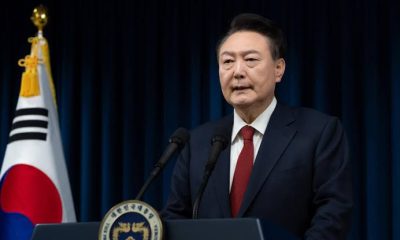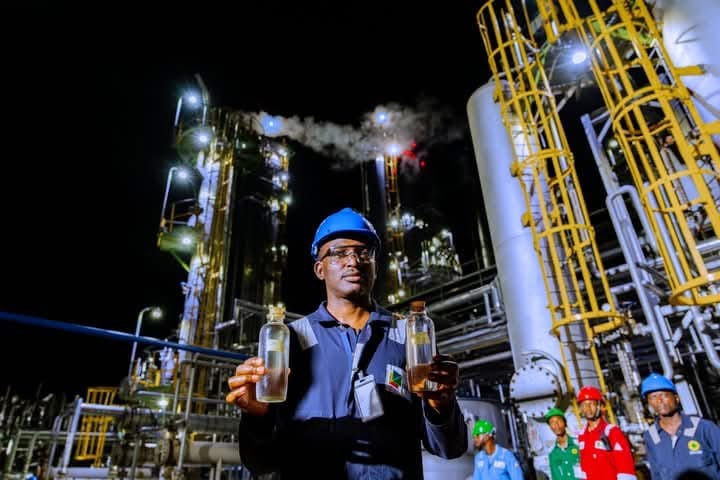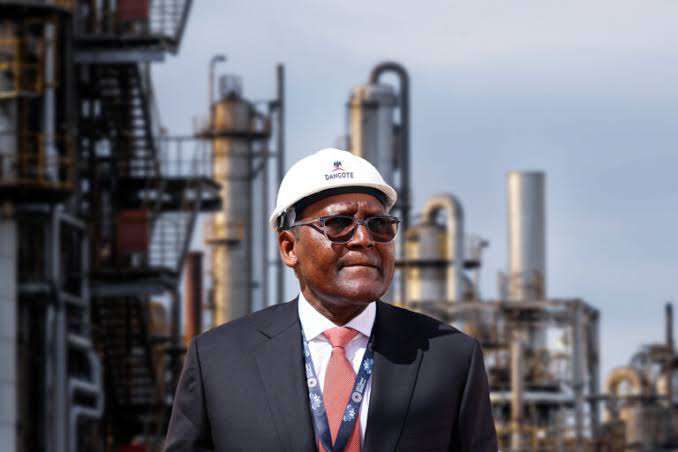Despite securing multilateral loans amounting to $3.334bn (N5.178tn) and attracting over $4.3bn investments to boost food production, the cost of essential staple food items skyrocketed by 60.88 per cent under the leadership of President Bola Tinubu, The PUNCH reports.
When Tinubu assumed office in May 2023, food inflation was 24.82 per cent. It jumped to about 40 per cent in November 2024. This is based on data from the National Bureau of Statistics.
This is occurring as Nigerians are increasingly struggling to afford basic food items, with many households finding it difficult to make ends meet due to the sharp rise in prices.
This stark increase in food prices stands in contrast to the government’s ambitious efforts to address food security and agricultural development, raising concerns about the effectiveness of current economic policies, the impact of inflation, and the challenges in translating financial support into tangible relief for Nigerians.
Explainer: Guidelines To Actualise Guinness World Record Dream | Punch
Upon assumption of office in May last year, President Tinubu promised to prioritise food availability and security, stressing that the government would cultivate about 500,000 hectares of farmlands to combat hunger in the country.
“I am well aware that for some time now, the conversations and debates have centred on the rising cost of living, high inflation, which is now above 28 per cent, and the unacceptable high under-employment rate.
“To ensure constant food supply, security, and affordability, we will step up our plan to cultivate 500,000 hectares of farmlands across the country to grow maize, rice, wheat, millet, and other staple crops”, Tinubu stated in his new year address amidst other commitments.
However, the spiral increase in transportation costs occasioned by the removal of fuel subsidies, massive devaluation of the naira, and ravaging insecurity have fuelled a rapid increase in the price of all food commodities over 19 months.
Data obtained from the Consumer Price Index report released by the National Bureau of Statistics between May 2023, when Tinubu assumed office, and November 2024 showed that for 14 consecutive months, Nigerians spent increasingly more money each time they visited the market to buy food items.
A breakdown showed that food inflation increased from 24.82 per cent in May 2023 to 25.25 per cent in June, 26.98 per cent in July, 29.34 per cent in August, 30.64 per cent in September, 31.52 per cent in October, 32.84 per cent in November and 33.93 in December 2023.
By January 2024, the price of food items increased to 35.41 per cent and surged further to 37.92 per cent in February, 40.01 per cent in March, 40.53 per cent in April, 40.66 per cent in May, 40.87 in June, before witnessing a drop to 39.53 per cent in July and 37.52 per cent in August due to the harvest season.
In September, the cost of food increased again to 37.77 per cent, 39.16 per cent in October, and 39.93 per cent in November, which is almost 40 per cent.
Despite the challenging situation, checks by our correspondent revealed that the government secured loans totalling $3.334bn, an equivalent of N5.178tn from the World Bank and the African Development Bank under President Tinubu’s administration to enhance agricultural production, adopt innovative farming techniques, and increase food sufficiency for Nigerians.
Analysis showed that $500m was approved by the World Bank for the Livestock Productivity and Resilience Support Project to boost livestock production and food security nationwide.
The Board of the World Bank Group approved a $500m loan to Nigeria last week Friday (December 13, 2024) to boost rural access and agricultural marketing in the country.
According to information obtained from the Washington-based institution, the loan is for the Rural Access and Agricultural Marketing Project—Scale Up.
It is designed to bridge the gap between rural communities and the broader marketplace, facilitating smoother access to agricultural markets, schools, and hospitals and promoting social cohesion among rural populations.
Similarly, the AfDB under the leadership of President Akinwumi Adesina has approved a loan facility worth $2.2bn in capital mobilisation for its transformative Special Agro-Industrial Processing Zones in Nigeria.
He said phase two is set to revolutionize Nigeria’s agricultural sector by creating agro-industrial hubs that drive productivity, enhance food security, raise living standards, and create jobs.
The programme will be implemented in states including Cross River, Imo, Ogun, Oyo, Kaduna, Kwara, Kano, and the Federal Capital Territory and will expand to an additional 24 States in Nigeria in the next three years.
In an interview with PUNCH, Adeshina said its agricultural initiatives would yield about five million metric tons of wheat, rice, cassava, and this year for the country.
Also, a loan of $134m was approved for seeds and grain production in the country in November this year.
A statement by the agriculture ministry said the fund will support farmers across the country to increase production of key staple crops, thereby improving national food security.
Health 360: Sickle Cell Disease
Upon assumption of office in May last year, President Tinubu promised to prioritise food availability and security, stressing that the government would cultivate about 500,000 hectares of farmlands to combat hunger in the country.
“I am well aware that for some time now, the conversations and debates have centred on the rising cost of living, high inflation, which is now above 28 per cent, and the unacceptable high under-employment rate.
“To ensure constant food supply, security, and affordability, we will step up our plan to cultivate 500,000 hectares of farmlands across the country to grow maize, rice, wheat, millet, and other staple crops”, Tinubu stated in his new year address amidst other commitments.
However, the spiral increase in transportation costs occasioned by the removal of fuel subsidies, massive devaluation of the naira, and ravaging insecurity have fuelled a rapid increase in the price of all food commodities over 19 months.
Data obtained from the Consumer Price Index report released by the National Bureau of Statistics between May 2023, when Tinubu assumed office, and November 2024 showed that for 14 consecutive months, Nigerians spent increasingly more money each time they visited the market to buy food items.
A breakdown showed that food inflation increased from 24.82 per cent in May 2023 to 25.25 per cent in June, 26.98 per cent in July, 29.34 per cent in August, 30.64 per cent in September, 31.52 per cent in October, 32.84 per cent in November and 33.93 in December 2023.
By January 2024, the price of food items increased to 35.41 per cent and surged further to 37.92 per cent in February, 40.01 per cent in March, 40.53 per cent in April, 40.66 per cent in May, 40.87 in June, before witnessing a drop to 39.53 per cent in July and 37.52 per cent in August due to the harvest season.
In September, the cost of food increased again to 37.77 per cent, 39.16 per cent in October, and 39.93 per cent in November, which is almost 40 per cent.
Despite the challenging situation, checks by our correspondent revealed that the government secured loans totalling $3.334bn, an equivalent of N5.178tn from the World Bank and the African Development Bank under President Tinubu’s administration to enhance agricultural production, adopt innovative farming techniques, and increase food sufficiency for Nigerians.
Analysis showed that $500m was approved by the World Bank for the Livestock Productivity and Resilience Support Project to boost livestock production and food security nationwide.
The Board of the World Bank Group approved a $500m loan to Nigeria last week Friday (December 13, 2024) to boost rural access and agricultural marketing in the country.
According to information obtained from the Washington-based institution, the loan is for the Rural Access and Agricultural Marketing Project—Scale Up.
It is designed to bridge the gap between rural communities and the broader marketplace, facilitating smoother access to agricultural markets, schools, and hospitals and promoting social cohesion among rural populations.
Similarly, the AfDB under the leadership of President Akinwumi Adesina has approved a loan facility worth $2.2bn in capital mobilisation for its transformative Special Agro-Industrial Processing Zones in Nigeria.
He said phase two is set to revolutionize Nigeria’s agricultural sector by creating agro-industrial hubs that drive productivity, enhance food security, raise living standards, and create jobs.
The programme will be implemented in states including Cross River, Imo, Ogun, Oyo, Kaduna, Kwara, Kano, and the Federal Capital Territory and will expand to an additional 24 States in Nigeria in the next three years.
In an interview with PUNCH, Adeshina said its agricultural initiatives would yield about five million metric tons of wheat, rice, cassava, and this year for the country.
Also, a loan of $134m was approved for seeds and grain production in the country in November this year.
A statement by the agriculture ministry said the fund will support farmers across the country to increase production of key staple crops, thereby improving national food security.
Related News
Food inflation: Imported rice price jumps by 114%
Food inflation: Seven imported wheat vessels arrive Nigeria
Stakeholders warn of higher food inflation in 2025
“The Federal Government has secured a loan facility of $134m from the African Development Bank to help farmers boost seeds and grain production in the country,” the statement read.
The government through the Ministry of Agriculture and Food Security also secured a private-sector investment commitment worth $4.3bn to advance private-sector development in fertiliser production, hybrid seed technology, and agricultural finance.
The partnership with the Fundação Getulio Vargas of Brazil will support one agribusiness in Nigeria’s 774 Local Government Areas with technical and financial resources over the next five years.
The surge in food costs underscores the complexities of managing an economy where external financial assistance and investments have yet to stabilize the market or alleviate the burden on citizens.
Stakeholders wondered the effect of the loans which are to yield expected results and drive down the cost of food items.
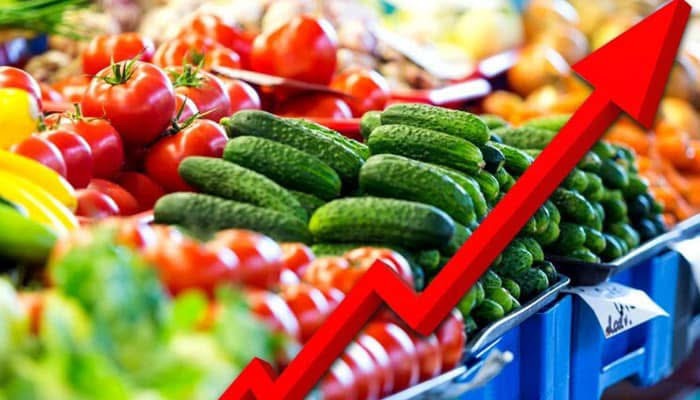

 Business10 months ago
Business10 months ago
 Politics7 months ago
Politics7 months ago
 SportsNews10 months ago
SportsNews10 months ago
 Politics10 months ago
Politics10 months ago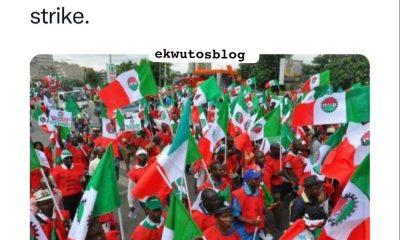
 Politics7 months ago
Politics7 months ago








